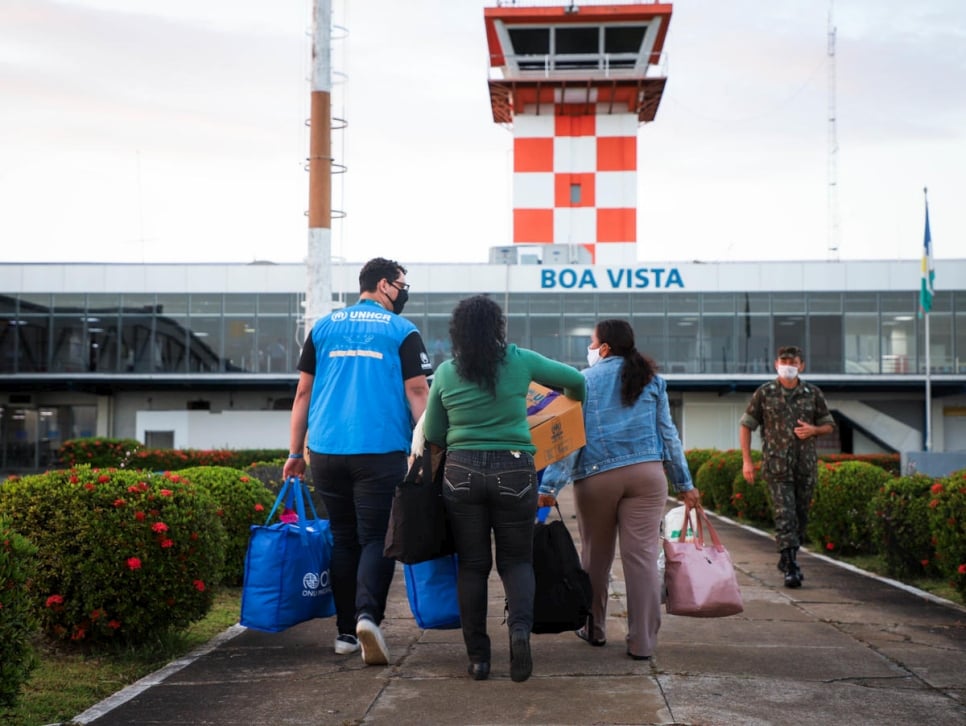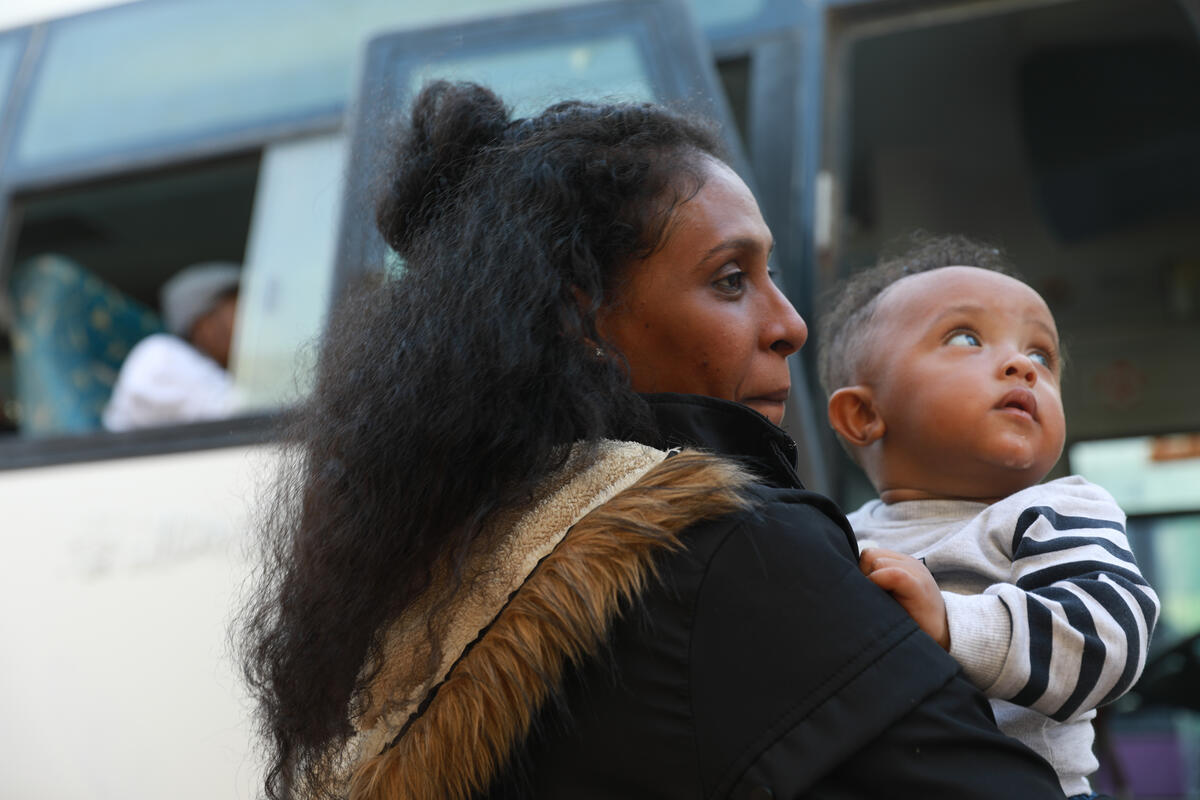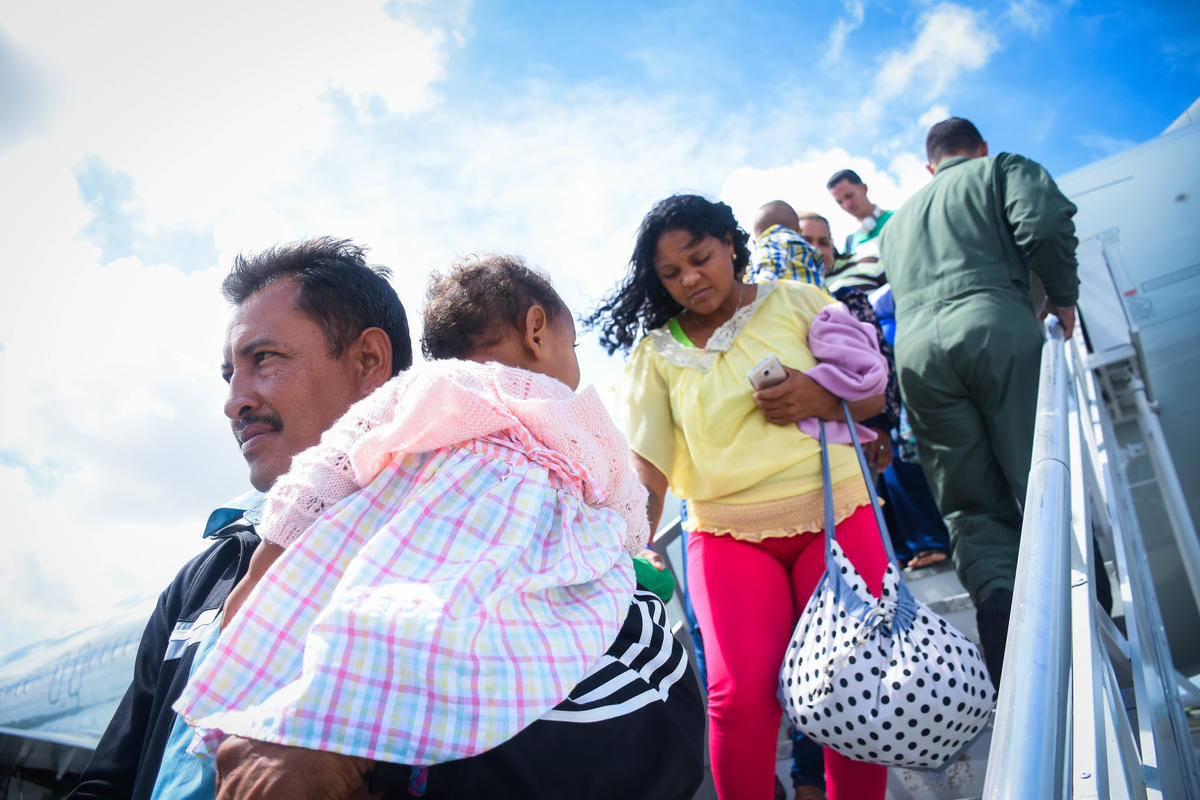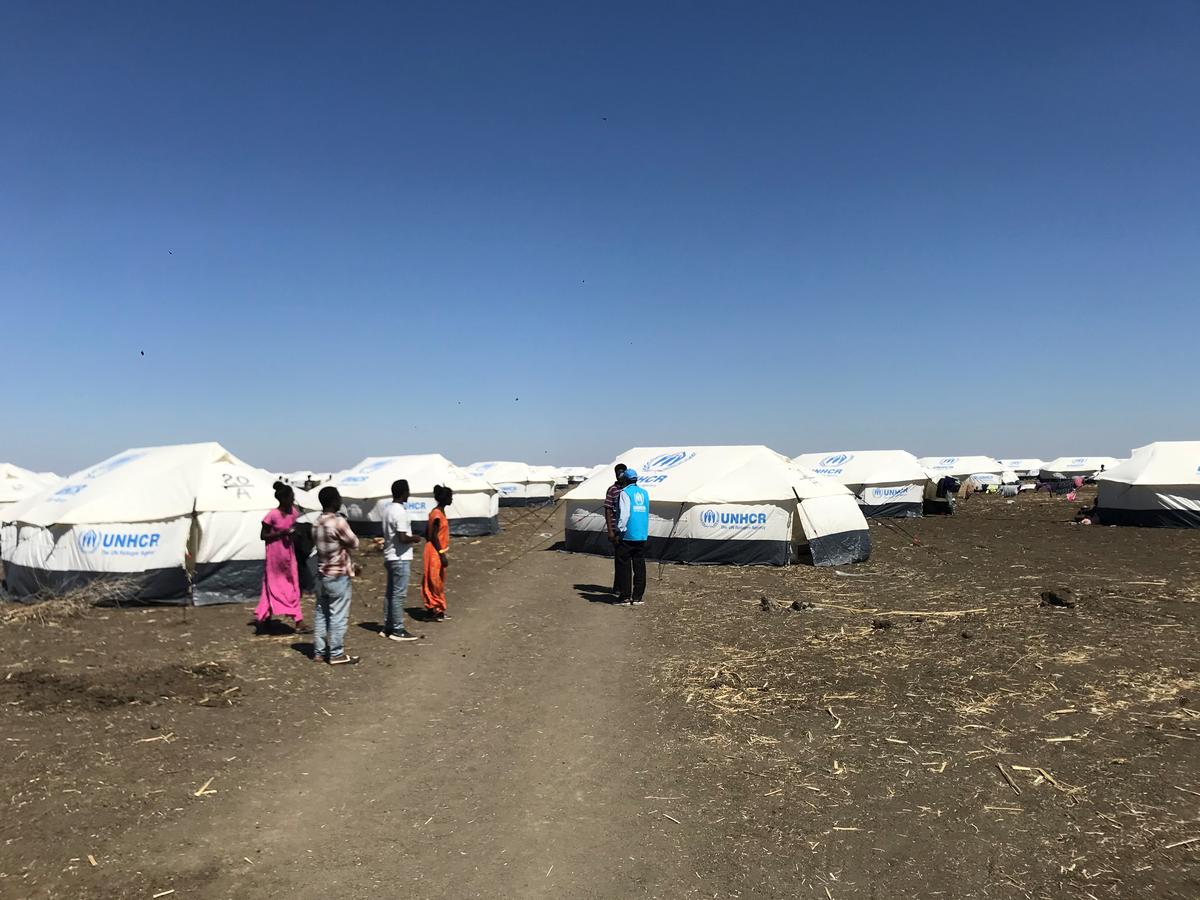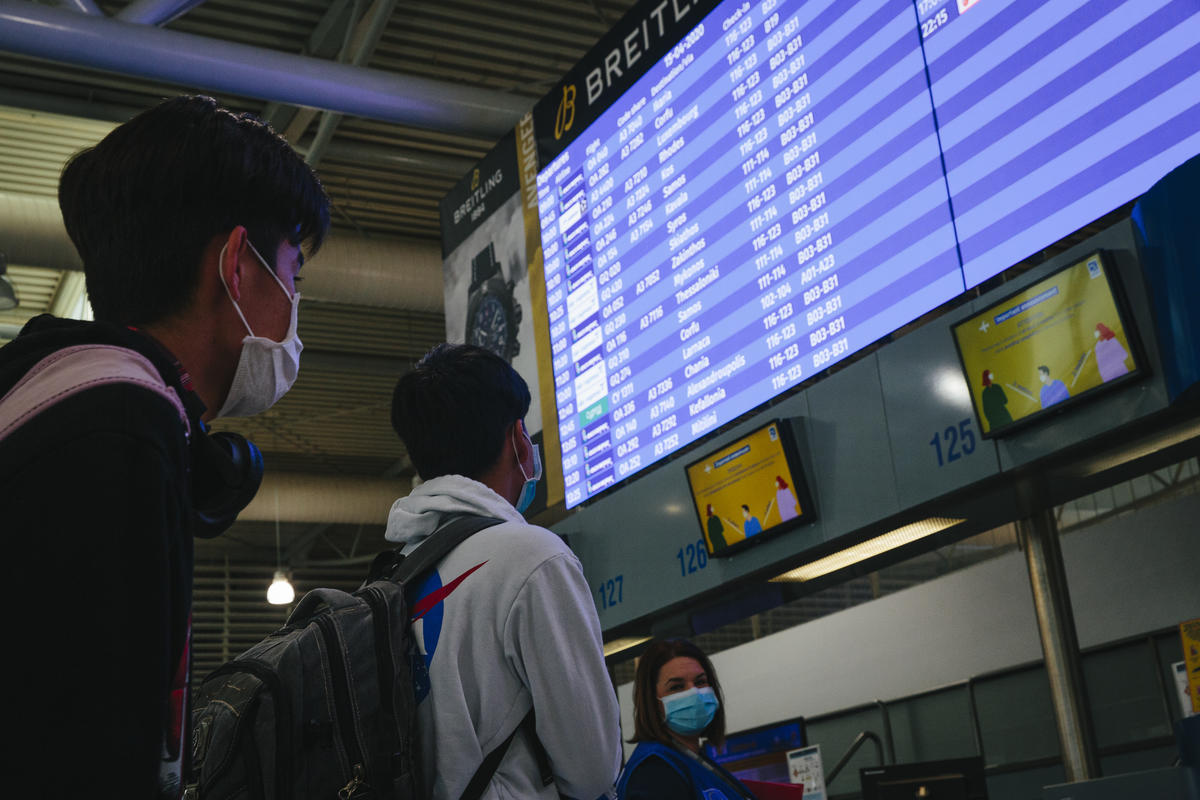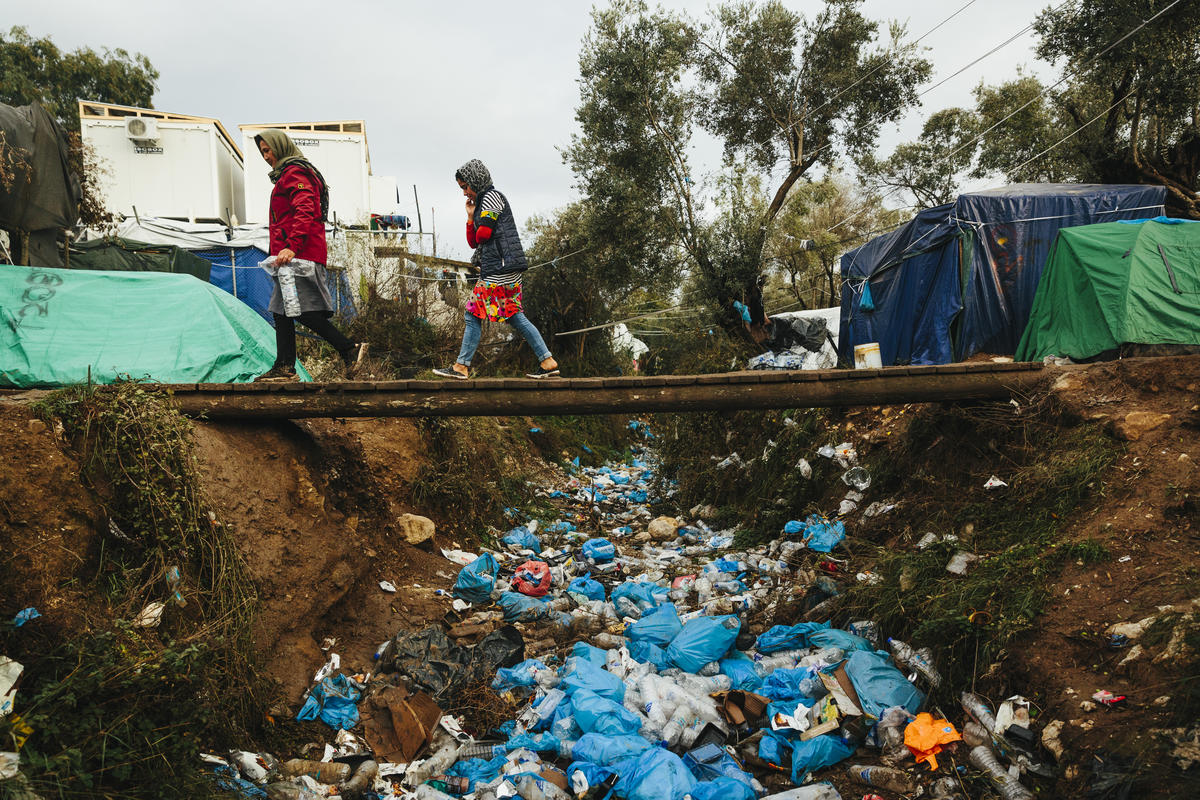Transfer of Afghans from Jalozai camp begins; 12,000 Afghans have returned home from Iran this month
Transfer of Afghans from Jalozai camp begins; 12,000 Afghans have returned home from Iran this month

KOTKAI, Pakistan, Nov. 19 (UNHCR) - In the first of a series of transfers planned for the coming days, almost 400 Afghans were transferred Monday from the Jalozai camp outside Peshawar to the new UNHCR camp at Kotkai, but some refugees expressed concern about moving to an isolated tribal area.
The camp at Kotkai, where the 382 refugees arrived after an uneventful five-hour journey, is located 120 kilometres from Peshawar and is equipped with tents, sanitary facilities, and clean water. The site, which can house up to 20,000 people, also has an aid distribution system in place.
Meanwhile, hundreds of Afghans continue to voluntarily return to their country from Iran every day. On Monday 965 people went back, bringing the total number of refugees who have decided to return to almost 12,000 since the beginning of November, UNHCR reported.
The agency said the total number of refugees who return home this month is expected to be higher than the 15,000 people who made the journey back voluntarily in October.
Refugee agency staff workers report a more relaxed atmosphere among Afghans going home through Dogharoun, Iran's main north-east border crossing. Some of the men now wear jeans on the return trip rather than the long shirt and loose trousers required in Afghanistan. Women are also arriving at the border dressed in the long Iranian coat and head-dress known as the Chador rather than in the Burka imposed on them by the Taliban.
"The staff say that many of the predominantly young male returnees have shaved off their beards," UNHCR said Monday. "Some are now taking home with them radio cassette players which they listen to as they wait for border formalities to be completed."
The departure scene at Jalozai was surprisingly easygoing, given the circumstances. Large numbers of friends and relatives accompanied families on their way to Kokai to the departure point. Most walked to the departure area, but the more affluent arrived in donkey-drawn carts operated by local entrepreneurs.
"Many of those seemed to be in good spirits, albeit some said they were nervous," UNHCR said Monday. "As seven rickety buses accompanied by two white UNHCR vehicles and an ambulance pulled slowly out of the registration compound, children peered curiously through the windows at those staying behind."
Nevertheless, 220 refugees who signed up for the transfer Monday failed to show up "in an indication that many residents of Jalozai were still having problems deciding whether to move away from the proximity of a large city to an isolated tribal area," the refugee agency said.
Refugee agency workers at the scene said they were "shocked" at the sparse luggage carried by the departing refugees, and a large truck hired by the agency to carry their belongings remained empty. "It is quite clear that they have nothing," said one UNHCR official who oversaw the operation.
The transfer from Jalozai, which is described as a squalid, treeless site, was possible following an agreement over the weekend with provincial authorities in Pakistan's North-West Frontier Province. Under the accord, UNHCR was also permitted to help non-Pashtun refugees who settled in the "unofficial" part of the camp and who are reluctant to move to Kotkai, located in a Pashtun tribal area.
Meanwhile, Afghans continue to arrive at the Killi Faizo staging site near the Chaman border crossing in southern Pakistan even as the transfer of hundreds of refugees to the Roghani camp further inland continues. Some 1,160 persons were registered at Killi Faizo on Sunday. In all, 3,119 persons are now at Killi Faizo waiting to be transferred to Roghani, which now holds more than 4,000 people.


